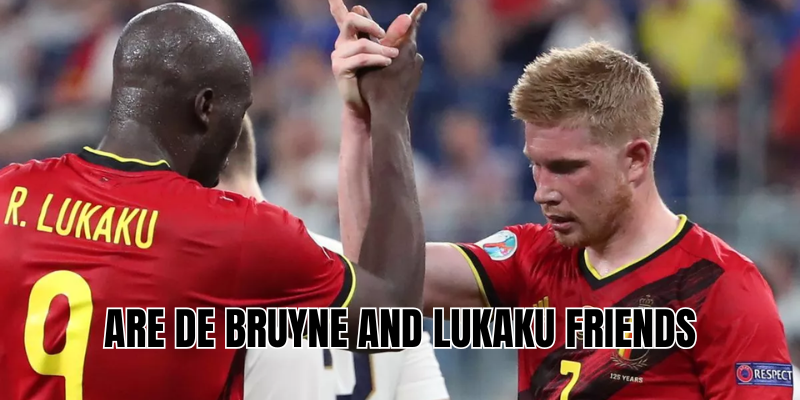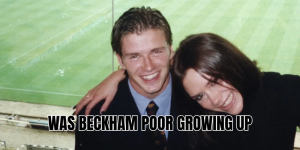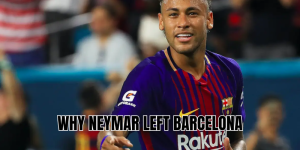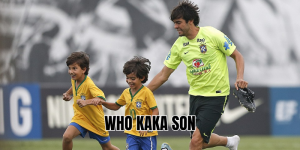When football fans search “are De Bruyne and Lukaku friends”, they’re not just asking about teammates—they’re asking about history, chemistry, loyalty, and personality. In the golden generation of Belgian football, few relationships are as fascinating as that between Kevin De Bruyne and Romelu Lukaku. In this article, QuraGoal will take you on a journey through their bond—.
Early Days: Meeting As Young Belgians
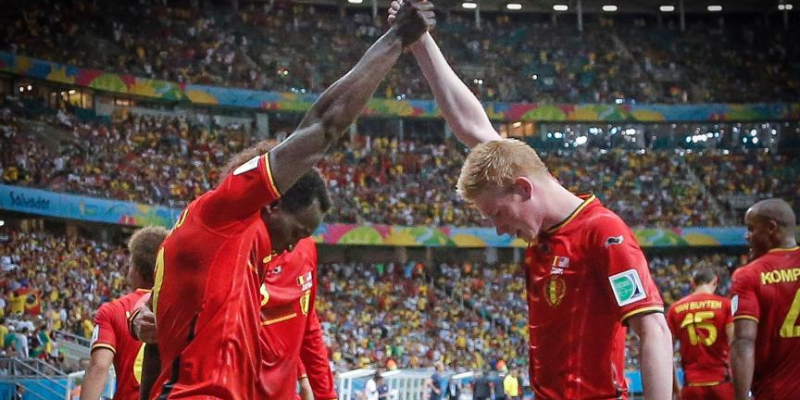
The roots of their friendship stretch back to when both were youngsters in Belgian youth systems. Growing up in the same national setup, De Bruyne and Lukaku crossed paths early and developed mutual respect as they climbed together through age-group squads. Over time, that respect deepened into familiarity and personal connection that would persist through club moves, ups and downs, and many transfers.
Even as their club careers diverged—De Bruyne becoming an elite playmaker in Germany and England, Lukaku forging a path as one of Europe’s most powerful strikers—the bond established in those formative years never fully broke. As they matured into stars, they often represented Belgium side by side, reinforcing both on-field chemistry and off-field friendship.
Public Statements And Gestures That Reveal Their Bond
To answer are De Bruyne and Lukaku friends, we can look at how they talk about each other and what small rituals tell us about their closeness.
- De Bruyne has publicly said that Lukaku is “one of my best friends in football,” referencing their long-time connection.
- In an interview upon joining Napoli, De Bruyne stated, “We’ve known each other since we were 13 years old,” implying a deep, long-standing personal relationship.
- When De Bruyne moved to Napoli, sources said he consulted Lukaku for insights into the club, coaching staff, and environment. He even mentioned that he would rely on Lukaku to help him integrate—both on and off the pitch.
- Lukaku also has expressed a supportive role: he encouraged De Bruyne to take a prominent role in Napoli. He didn’t need to “convince” him personally, but he welcomed the idea of partnering again.
- Their trademark handshake/gesture also has symbolic meaning. That ritual has been tied to unity, diversity, and connection, evolving. It’s more than flair—it’s a shared emblem.
These patterns go beyond mere public relations—they reflect a genuine camaraderie built across years.
On-Field Chemistry: Teammates At Napoli
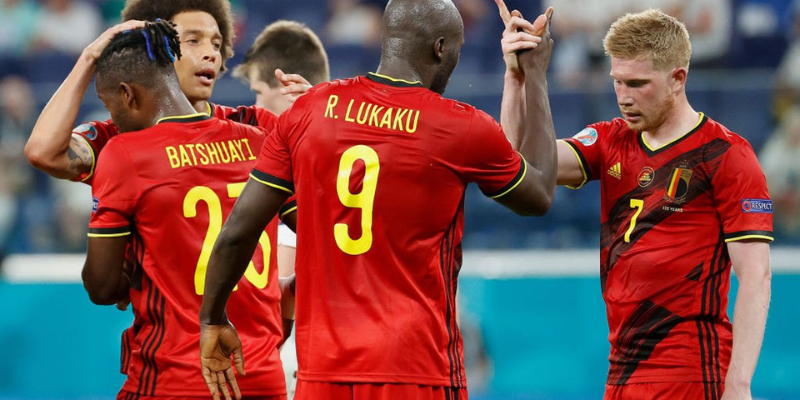
One crucial turning point in solidifying their partnership was their reunion at the club level in 2025, when De Bruyne joined Napoli, where Lukaku was already present.
Transition and Support
De Bruyne’s choice of Napoli over other suitors was reportedly influenced by Lukaku’s presence. That familiarity eased the move: De Bruyne mentioned that knowing Lukaku would help him acclimate faster—learning the language, understanding teammates, and adjusting to coaching demands.
Lukaku, already settled in Naples, is expected to act as bridge and advisor. When De Bruyne spoke of relying on Lukaku “for more than just goals,” it was a nod to the trust and interpersonal bond they share.
Performance and Partnership
In training sessions and early matches, the duo has already shown glimpses of understanding. Observers note that they connect instinctively, as though they recall patterns developed over years in the national team. Even when Lukaku misses finishes, the chemistry in movement, passing, and spatial awareness is evident.
Napoli’s internal sources also highlight the friendly competitiveness: they push each other, share jokes, and help newcomers settle—a dynamic many teammates have noticed.
Challenges And Limits: Always More Complex Than It Seems
Even the strongest friendships in football face challenges: rivalries, competition, changing club contexts, and periods of absence or different trajectories.
- There were times when De Bruyne and Lukaku played in opposing clubs—in different leagues or rival matches. These occasions test their professional balance between friendship and club rivalry.
- Media narratives sometimes exaggerate or interpret their gestures for dramatic effect, but real friendships in pro football often live quietly in mutual respect and private communication.
- With different personal styles—De Bruyne’s calm precision, Lukaku’s powerful personality—they don’t always align in temperament. But their bond seems resilient to these differences.
Still, these tensions don’t negate the central truth: their relationship has endured, evolved, and adapted.
Why Their Friendship Matters For Football Fans
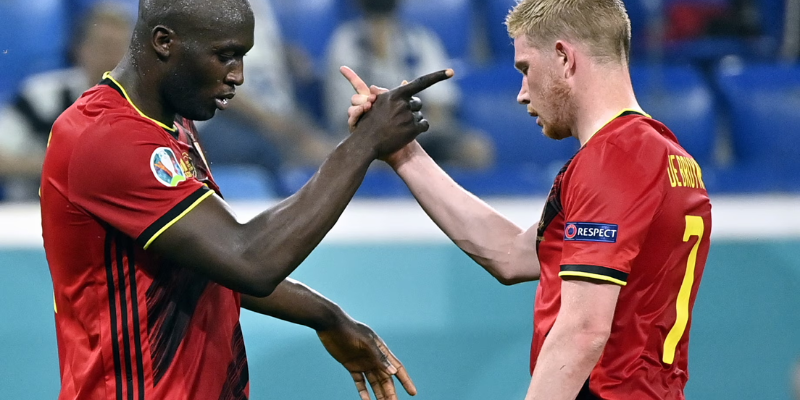
When fans ask “are De Bruyne and Lukaku friends,” they’re really seeking something deeper: the human story behind the superstar headlines. Their relationship gauges trust, loyalty, and narrative significance in the sport.
- Watching them play together feeds a sense of satisfaction—two greats.
- Their chemistry often boosts team performance: a midfield maestro feeding a lethal forward, grounded in mutual understanding.
- Off the pitch, their friendship humanizes them: they’re not just players on magazine covers—they’re long-time friends navigating pressure, success, and transitions together.
For Belgian fans, for Napoli supporters, and for football lovers everywhere, their bond is more than accessory gossip: it’s part of the story on every pitch they share.
Final Thoughts
Are De Bruyne and Lukaku friends? Yes — and not just superficially. Their relationship is rooted in childhood, fortified through national team service, and now reactivated at club level in Naples. They talk, they trust, they celebrate shared rituals, and they lean on each other in transitions. Their bond adds texture to matchday stories.
QuraGoal invites you to keep watching their evolving partnership in Napoli and Belgium. Next time they link for an assist or celebrate that signature handshake, you’ll know it’s more than football—it’s friendship turned legend.

